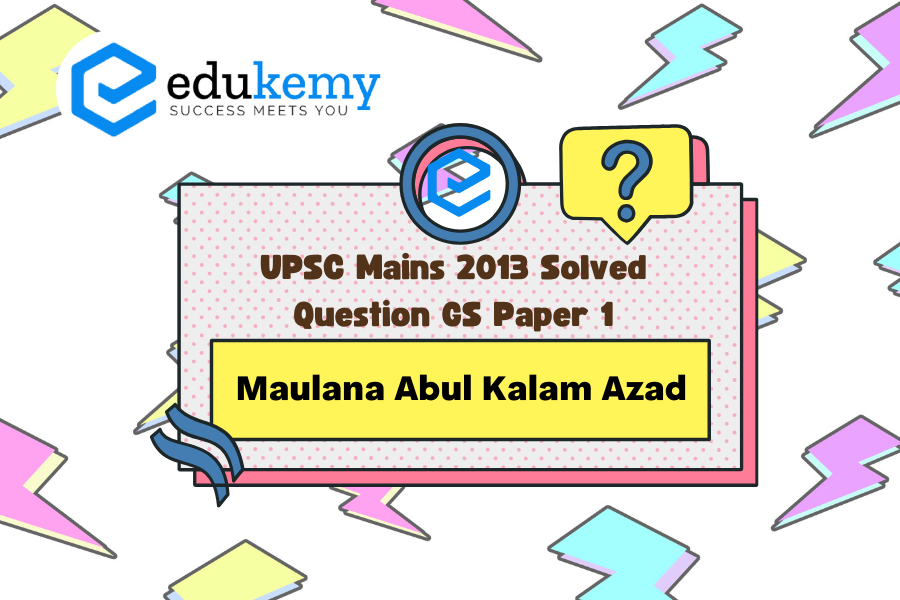Maulana Abul Kalam Azad stands as an indomitable figure in the annals of India’s struggle for freedom and its subsequent journey towards nation-building. A towering intellect, prolific writer, and fervent nationalist, Azad’s contribution to both pre- and post-independent India is profound and multifaceted. In the pre-independent era, Azad emerged as a formidable leader, playing a pivotal role in galvanizing the masses against British colonial rule. As the youngest president of the Indian National Congress in 1923, his eloquence and vision inspired countless Indians to join the freedom movement. His fearless advocacy for Hindu-Muslim unity and his unwavering commitment to secularism set him apart as a leader dedicated to the idea of a united, pluralistic India. Post-independence, Azad continued to be a guiding light, serving as the country’s first Minister of Education. His efforts in laying the foundations of a robust educational system aimed at nurturing an enlightened citizenry remain invaluable. Azad’s enduring legacy as a statesman, scholar, and freedom fighter continues to inspire generations, underscoring his indispensable role in shaping the destiny of a nascent nation.
Tags: Modern Indian History.
Contents
Decoding the question:
- In Introduction, try to start by briefly mentioning the contribution of Maulana Azad.
- In Body, discuss his contribution in pre and post independent India in various fields.
- Conclude with the significance of his contribution to revive the education sector.
Answer:
Maulana Azad was an Indian Scholar and Muslim Leader of Indian National Congress during Indian Independence Movement. Post Indian Independence, he became the First Minister of Education in the Indian Government. He played an important role in Hindu-Muslim unity and never supported India’s partition.
Contributions of Maulana Azad Before independence:
- Hindu-Muslim unity: During his young age, he rose to prominence through his work as journalist, publishing works critical of British Raj and espousing causes of Indian nationalism. He worked for Hindu-Muslim unity through the Al-Hilal newspaper.
- Khilafat movement: Maulana Azad was a prominent Leader in Khilafat Movement in which he came in close contact with National Leaders such as Mahatma Gandhi, Vallabh Bhai Patel and Jawahar Lal Nehru.
- Non-cooperation movement: Maulana Was disheartened by the Rowlatt Act of 1919 and worked to organize the Non-Cooperation Movement and Protests in opposition of the Act. He Organized several agitations and worked in the able guidance of Gandhi Ji and his principles.
- Dharasana Satyagraha: He was one of main organizers of the Dharasana Satyagraha in 1931 and emerged as one of the most important national leaders of the time, prominently leading causes of Hindu-Muslim unity as well as espousing secularism and socialism.
- Protest against Two Nation Theory: Maulana criticized Jinnah over Two Nation Theory and believed that Hindu and Muslims can co-exist in Independent India.
- Quit India Movement: He played a significant role in the Quit India Movement by meeting a large number of People in rallies and led agitations and protests against Colonial Government. He served as the Congress president from 1940 to 1945, during which the Quit India movement was launched.
- India’s independence: He negotiated with the British Cabinet mission for India’s independence. Further, he was strictly against India’s partition even after acceptance of partition by Gandhiji.
Contribution of Maulana Abul Kalam Azad to post-Independent India:
- He was elected to the Constituent Assembly from the United Provinces on a Congress ticket.
- He was a member of five different committees, and actively intervened in the debates on the issues of national language and education.
- After independence, Azad was appointed as the Education Minister, a post that he went on to hold for a decade until 1958.
- He was monumental in establishing the Indian Council for Cultural Relation (ICCR) to secure cultural exchange between India and the Eastern Countries.
- His contribution in setting up the Council of Scientific and Industrial Research (CSIR) is unparalleled.
Maulana Abul Kalam Azad was an ardent follower of Gandhian philosophy, his contribution in promoting the integrity of the nation, reforming education sector, creating brotherhood among the communities, etc., remain the highest point of his life. He died on February 22, 1958. Azad was posthumously awarded the Bharat Ratna in the year 1992 in recognition of his efforts as a freedom fighter, journalist, scholar, and a poet.
In case you still have your doubts, contact us on 9811333901.
For UPSC Prelims Resources, Click here
For Daily Updates and Study Material:
Join our Telegram Channel – Edukemy for IAS
- 1. Learn through Videos – here
- 2. Be Exam Ready by Practicing Daily MCQs – here
- 3. Daily Newsletter – Get all your Current Affairs Covered – here
- 4. Mains Answer Writing Practice – here


